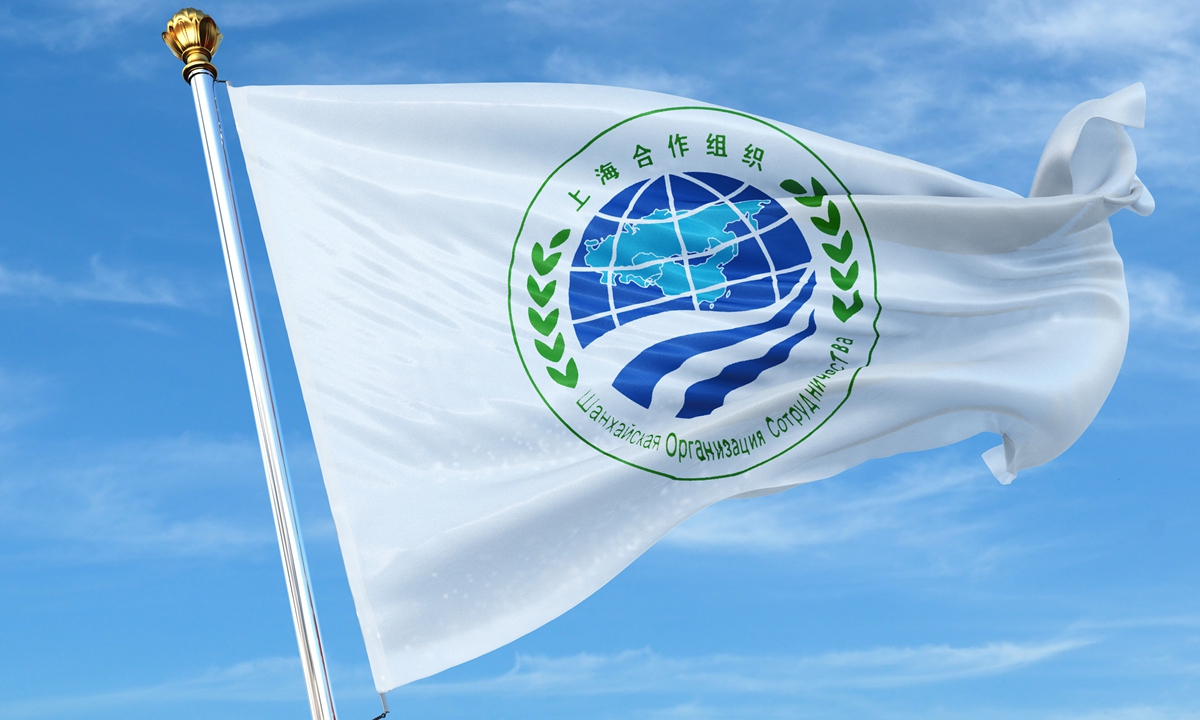
Shanghai Cooperation Organization Photo: VCG
Editor's Note:
The Shanghai Cooperation Organization (SCO) summit was held in Samarkand, Uzbekistan, from Thursday to Friday. The summit attracted international attention as it took place against the backdrop of the rise of the non-Western world. To what extent can the SCO provide an alternative for the world order? What is the biggest difference between the SCO and West-led organizations? Global Times (
GT) reporter Wang Wenwen talked to Sheradil Baktygulov (
Baktygulov), an independent political analyst based in Bishkek, Kyrgyzstan, about these issues.
GT: Some Western media outlets and observers tend to describe the SCO's exploration of new multilateral cooperation mechanisms as wanting to "compete" with the West or as being "against the West." What's your take on the view?
Baktygulov: The Western media outlets and observers' opinions are based on the Western point of view about world development. It might be described as a policy of Western supremacy over the world. The past examples are the Crusades, World War I and World War II. Nowadays it is based on the fact that the richest and most developed countries are the Western countries. Such stereotypes have been rooted in Western societies for centuries. Thus we have to deal with "tunnel vision" which promotes Western supremacy. This is quite a limited approach since the wealth within the Western societies was taken from non-Western countries.
The SCO has introduced new multilateral cooperation mechanisms. It consists of countries that want their economies to grow but do not rely on the West in this undertaking. Being in a "pro-Western" bloc carries with it high risks of turning the country into some kind of neo-colonial state under the economic dictates of the West. Whereas the "non-Western bloc" grouped around the SCO is much freer in terms of the foundations of its formation.
If the leaders of the countries worldwide would like to find efficient solutions to the real-world problems, they shouldn't oppose each other. They should work hand in hand. The leaders come and go but the peoples and countries should remain in peace and wealth.
GT: What do you think is the biggest difference between the SCO and West-led organizations? Which represents real multilateralism? Why?
Baktygulov: International cooperation is based on multilateral institutions and the SCO is a model of successful regional cooperation. The SCO has managed to unite countries with different cultural and civilizational codes, and different foreign policy guidelines and models of national development. In a short historical period, the SCO has come a long way, becoming an integral element of the modern global political and economic world order.
Today, the SCO family is the world's largest regional organization, which has united a vast geographical area and about a third of the population of our planet. The concept of the success of the SCO is the promotion of multifaceted cooperation through ensuring regional security.
The SCO makes all decisions on the basis of consensus. It doesn't matter how big a territory or economy of this or that country is. The aim is for mutually beneficial cooperation on a wide range of real-world issues.
The Western-led organizations couldn't operate in this way. Let's take China. China has demonstrated impressive economic and social progress, markedly increasing its share and influence in the global system because of its opening-up policy. It is quite important to note that China's tremendous achievements originated from its own national approaches, not recommendations dictated by the Western countries or the Western-led organizations. The Western recommendations do not work outside the Western world due to a wide range of global diversity in governance, economic models and public affairs.
The SCO takes the goodwill approach. The human values, solid international legal base, good relations among countries and good relations among people represent some examples of this approach. The SCO is providing new opportunities to all interested countries in terms of mutually beneficial economic growth. And none of the member states dictates to another what should be done.
GT: What is the significance of the meeting between Chinese President Xi Jinping and Russian President Vladimir Putin at the SCO?
Baktygulov: The modern system of international cooperation, based on universal principles and norms, is beginning to fail significantly. One of the main reasons for this is a deep crisis of confidence at the global level.In this regard, we are full of optimism and are convinced that the decisions of the SCO Summit will make a feasible contribution to the strengthening of dialogue, mutual understanding and cooperation both at the regional level and globally. Particularly, the leaders of two powerful countries in the world could outline a kind of "road map" for strengthening multilateral cooperation.




